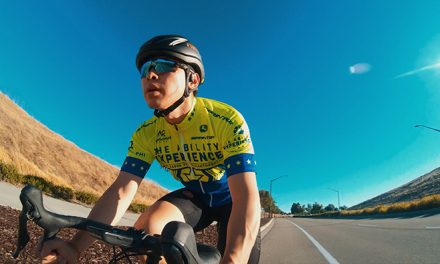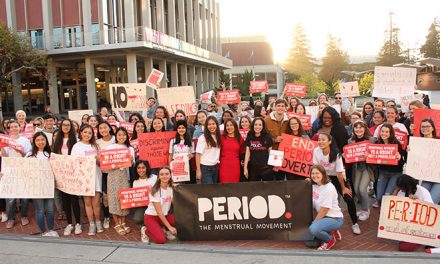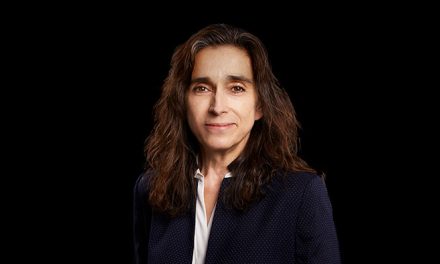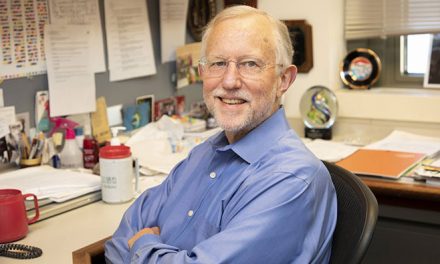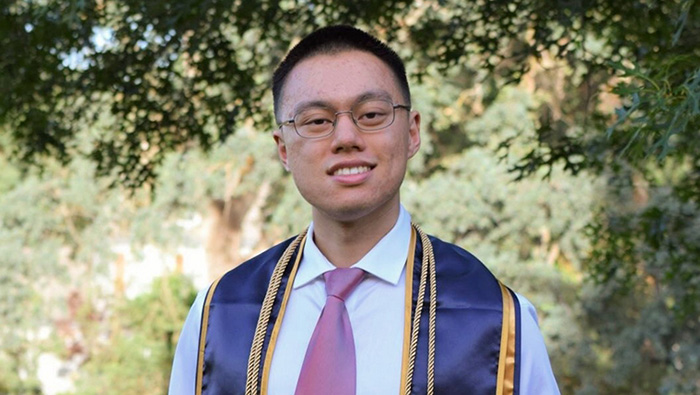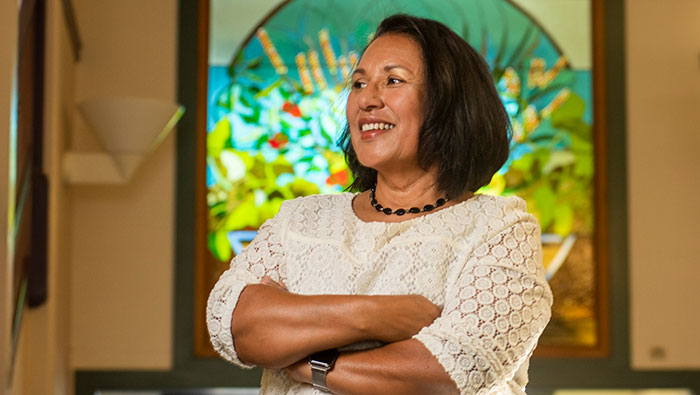
Gloria Partida, photographed at the Davis City Hall shortly after becoming mayor. (Karin Higgins/UC Davis)
The Activist Mayor
As a longtime advocate in Davis, Gloria Partida ’93 has a lot of experience working with people to change policies. Now, as the newly appointed mayor of Davis, she’s experiencing the process from the other side.
“The transition has been a little bit of an exercise in patience,” said Partida, who spent years as a community activist before being elected to the Davis City Council in 2018 and this July took over as mayor. “Oftentimes when you’re working in activism you can be very nimble. When you’re on the city council [the process] takes a lot more time.”
As an activist Partida was part of a movement in the 1980s that led Davis schools to provide inclusive education, where many students with special needs are educated at their neighborhood schools instead of at a specialized school in Woodland. Before coming to Davis, she was part of Mothers of East LA, a group that kept a proposed prison from being built in their neighborhood.
As an elected official, she has had victories, like helping to create the Davis Police Accountability Commission shortly after her election. Others, like a daytime homeless shelter, have been slower to come to fruition: All potential locations faced neighborhood opposition except for a city-owned property where work trucks and equipment are kept.
“There was nowhere in the city we could place that where people wouldn’t be really, really upset about it going into their neighborhood,” she said.
Much of her focus has also been redirected by the coronavirus pandemic, which has gutted the city’s sales tax revenue as businesses have been forced to close.
“Any sort of big road changes we were going to do or anything we were going to build is going to have to be sidelined,” Partida said.
Long history in Davis
Partida came to UC Davis as an undergraduate in 1989 and didn’t leave until 2019, retiring as a lab manager in the Department of Neurobiology, Physiology and Behavior. She worked in the lab of Professor Andrew Ishida, studying neurons in retinas. Her familiarity with UC Davis has led her to push for closer connections between the university and the city.
“I think there are a lot of places where there can be overlap,” she said, noting that some residents push for higher fees or more stringent requirements for UC Davis to build housing. “That’s a little shortsighted because we also get a lot of benefits from the university being here.”
When Partida moved from Los Angeles to Davis, she had two sons and a daughter, all younger than 7. She decided to reenroll in college after separating from her husband. Her experiences around her children in Davis have had profound impacts.
In 2013, her oldest son, who is gay, was badly beaten in 2013 outside a house party in what was classified as a hate crime. He was left with a fractured skull and bleeding to his brain, and required therapy to regain speech and motor controls. Partida responded by co-founding the Davis Phoenix Coalition, a nonprofit that oversees anti-bullying initiatives for kids, holds a support group for the families of members of the LGBTQIA community and more.
Still, Partida has faith in the community, especially because of the way her youngest son, who has cerebral palsy and a developmental disability, has been treated in the past. He uses an electric wheelchair, and once got stuck on the railroad tracks in downtown Davis. He phoned for help, but quickly received assistance from a passerby.
“It so happened that somebody that knew him was passing and pushed him off the tracks,” Partida said. “It’s just incredible.”

